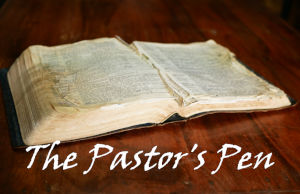
Following confrontation by Nathan, King David faces up to the ugly realities of his life. Therefore, Psalm 51 unfolds for us an honest confession of a broken sinner and his expectations of a merciful God. David became guilty of far more than he ever thought possible. It began with coveting another man’s wife which soon led to adultery, then the extermination of Uriah, who was the innocent husband and loyal to both wife and king. Such is the seductive nature of sin, it’s never content with the status quo, it must have more. You can read the sad account in 2 Samuel chapters 11-12.

David’s guilt had gripped him, and finally he confessed; I know my transgressions, and my sin is ever before me. Against you, you only, have I sinned and done what is evil in your sight. His offense was first and foremost against Holy God, all other offenses were secondly. This confession included acknowledging the correctness of God in calling a sinner to account and the impending judgement should he not repent. David accepted that God was justified in His words and blameless in His judgment of his sin (Psalm 51:3-4). David knew that he was exposed and condemned before an all knowing and holy God.
David could not undo his wrongs. He certainly could never restore innocence or Uriah’s life which he had extinguished. Realising his impending judgment, and the impossibility of making things right again, he cries out “have mercy on me, O God, according to your steadfast love” (Psalm 51:1). Hope ONLY existed in the merciful heart of a loving God. David’s hope and request were simple enough; “wash me thoroughly from my iniquity, and cleanse me from my sin!” (Psalm 51:2). He could not cleanse himself of these sins, others did not even want to forgive him, but God was both able and willing to cleanse David of his shocking crimes.
But cleansing of specific sins was not sufficient to prevent David repeating history. So, he asked the ONLY one who could do the impossible, he asked God; “create in me a clean heart, O God, and renew a right spirit within me” (Psalm 51:10). ONLY God has the desire and ability to regenerate an instinctively selfish and sinful heart to be clean and right before Him. What’s more, David knew that ONLY God could replace guilt and pain with joy. “Restore to me the joy of your salvation and uphold me with a willing spirit” (Psalm 51:12). Self-correction and self-determination could not maintain a righteous walk, but God can recreate a person’s heart so thoroughly that joy in God’s salvation becomes the new default. ONLY God can redesign the inner workings of a person so that volitional faithfulness becomes the joyful norm. And repentant David knew this.
However, personal reconciliation with God is never to be without its impact on others. David realised that this spiritual recreation within had to cause him to reach outside of self-interest. Consequently, David acknowledges that he “will teach transgressors God’s ways, and sinners will return to you” (Psalm 51:13). His renewed life, and his recreated right relationship with the Lord had to flow to others so that God could be glorified in their lives as in his own.
Finally, David desired to “sing aloud of God’s righteousness. O Lord, open my lips, and my mouth will declare your praise” (Psalm 51:14-15). Even in worship, David realised his dependency upon the Lord to enable him to verbally praise God appropriately. Silent gratitude was not to be the pattern of David’s life. The world had to know what God had done in rescuing sinful David. May this be true in each of us?
